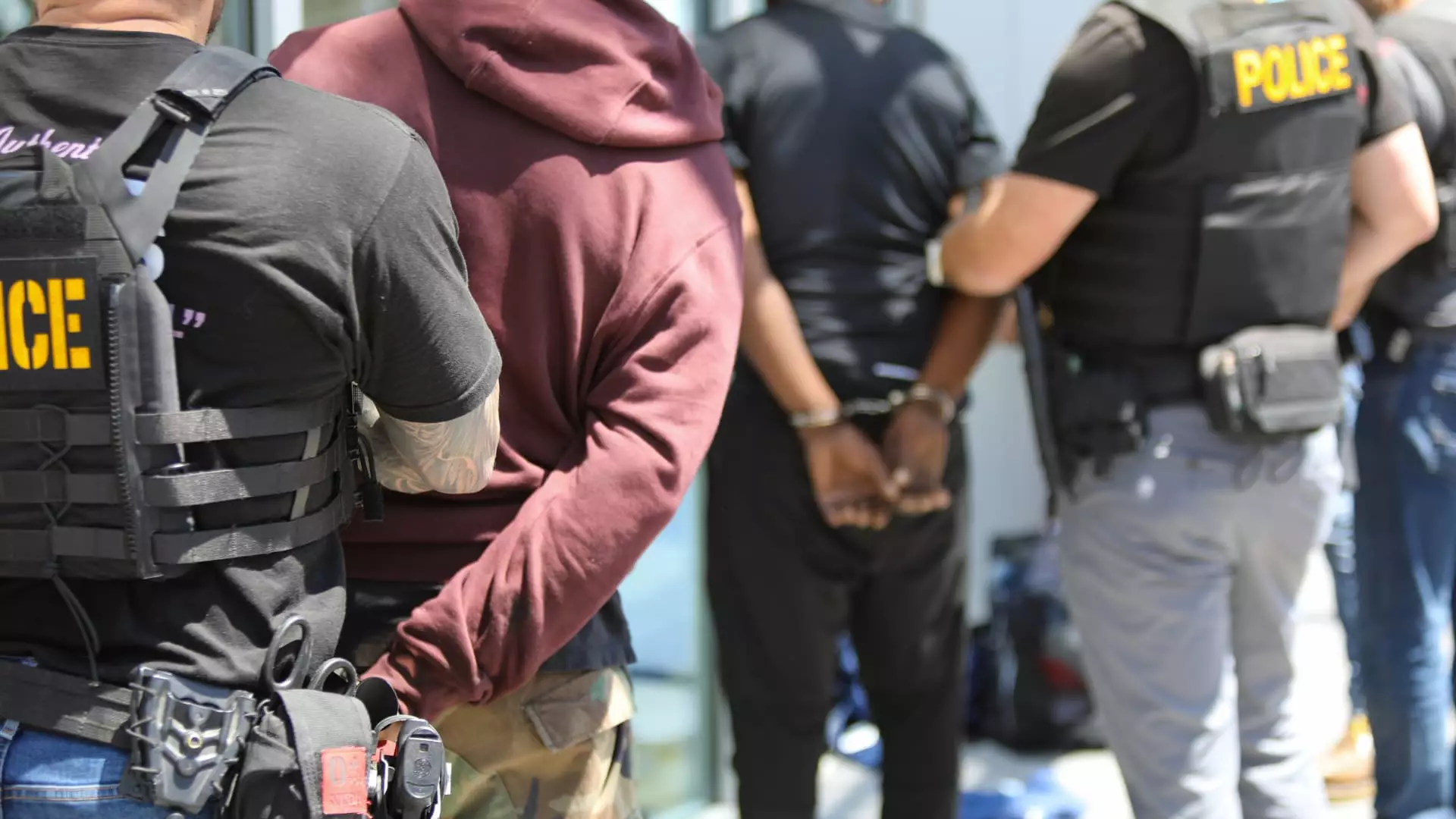In what is being hailed as a watershed moment in law enforcement, a recent coordinated nationwide operation targeting organized retail crime has resulted in hundreds of arrests across 28 states. This initiative, spearheaded by Cook County’s regional organized crime task force, demonstrates a significant shift in how authorities are addressing rampant thefts that have plagued retailers for years. The scale of this operation raises questions about the effectiveness of traditional enforcement measures and sheds light on a concerning trend: the exponential increase in organized retail crime, where criminals band together for audacious heists.
Cook County Sheriff Tom Dart’s assertion that targeted focus on crime can have a deterrent effect is both optimistic and critical. It highlights the underbelly of our justice system—a system that, until now, has been sluggish in addressing the sophisticated nature of these crimes. Unlike the petty shoplifting of yesteryears, modern organized retail crime involves well-coordinated teams who execute complex strategies to turn stolen goods into profit. The sheer audacity of these criminals demands a more robust law enforcement response, rather than the piecemeal strategies that have long defined our approach to retail theft.
Statistics That Speak Volumes
Scary statistics provide a grim backdrop to this epidemic. According to the National Retail Federation, retailers have reported a staggering 93% increase in shoplifting incidents in 2023 compared to 2019, with associated losses soaring by a chilling 90%. These figures indicate a vast and growing problem that necessitates more than just superficial fixes. Critics argue that lax enforcement—exacerbated by felony threshold laws—has allowed a culture of theft to flourish. The law’s failure to keep pace with the nature of organized retail crime has reached a breaking point, compelling law enforcement and prosecutors to actively engage in more aggressive tactics.
Cook County State’s Attorney Eileen O’Neill Burke’s commitment to revising felony theft criteria—from a former threshold of $1,000 down to $300—reveals a pressing need for urgency in addressing these crimes. The psychological impact of seeing retailers and prosecutors work hand-in-hand will serve as a preventive measure, but the reality is much grimmer; the criminals hardly fear the repercussions as they continue to exploit loopholes in the system.
Unified Action Against Crime
What the recent crackdown highlights is more than just an effective arrest initiative; it showcases the potential of collaboration among various stakeholders. From targeted information sharing between law enforcement and major retailers like Ulta Beauty and Walgreens, to stakeholders demanding stronger laws, the collective approach could signify a paradigm shift in handling retail crime. The voices of industry leaders, such as Ulta’s Senior VP of Loss Prevention, underscore that retail crime is not merely a nuisance but a serious threat to their businesses and the economy at large.
This kind of grappling with organized crime will not yield immediate results. It requires sustained pressure and collaboration—a challenging but necessary endeavor. In times of economic uncertainty and high inflation, businesses can’t afford to tolerate the losses incurred by organized crime. Sharing intelligence among different jurisdictions could very well be the key, and that unity is a powerful deterrent against criminals who thrive on the perceived fragmentation of law enforcement.
Calls for Legislative Changes
While the immediate focus is on prosecuting existing crimes, there lies an urgent need for legislative reform as well. The responses of major retailers suggest a unified front, calling not only for fortified law enforcement but also for laws that reflect the severity of crimes being committed. As these companies pool resources and demand effective reforms, it reflects an understanding that merely reacting to crime isn’t enough; they must advocate for policies that prevent crime before it occurs.
The conversation around organized retail crime is complex, involving the interplay of local policing, economic hardship, and legislative inadequacies. As retailers band together with law enforcement, the public needs to support meaningful reforms that make it clear: organized retail crime will not be tolerated. The crux of the matter is proactive deterrents, for only through rigorous actions can society hope to reclaim the streets from these modern-day criminal enterprises.
This collective uprising against retail crime marks a significant chapter in the fight for public safety, but it should serve as a rallying cry for others to join the cause. The time for complacency is over; bold measures are the need of the hour.

